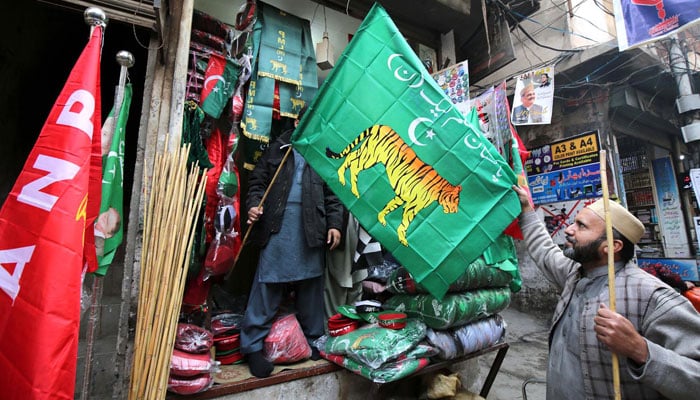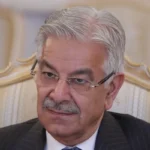The state establishment, which includes the judiciary and civil-military bureaucracies, safeguards system stability in a modern nation-state. They are the “steel frame” of the state, and their incentives are made to maintain order and reduce disorder in the system.
Ironically, through their rulings, our establishment—more specifically, the mil-judicial establishments—had previously enabled instability in the system. One illustration is the way the PTI’s growth and ascent over the previous ten years, as well as its ascent to power in 2018, were enabled by the expansion of the mil-judicial establishments. They produced Imran Khan, a cult leader with no prior experience in politics, whose only goal is to spread instability and disorder as well as politics of hatred. The military judiciary made this error.
Imran Khan has been supported since 2014 in order to cause unrest and turmoil within the system. He disparaged the parliament and other non-governmental organizations, like Pakistan Television, for instance. The strikes on Pakistan’s national security pillars on May 9, 2023, served as the anticlimax to the PTI’s turbulent politics.
It’s easy to see why Imran Khan has adopted an unstable and chaotic political stance. In a developing nation such as Pakistan, politics of hate, upheaval, and instability tend to draw attention away from actual performance difficulties if the governance and economic systems are not meeting the needs of the vast majority of people.
The growth of China can be understood as a direct result of Guanzi’s ideals on placing stability above everything else. Chinese socioeconomic policies have been greatly influenced by the ancient Chinese literature known as “Guanzi.” Its foundation is the notion that systemic stability is necessary for both economic growth and stability. In other terms, Guanzi supports “experimental gradualism,” or gradual systemic transformations, as opposed to shock therapy or systemic disturbances.
The PML-N is the only political party in Pakistan offering experimental gradualism, a socioeconomic agenda influenced by Guanzi. The civil-military divide inside Pakistan’s system is the one problem that consistently causes instability in that country.
In light of Guanzi, the PML-N proposes a solution to this problem: we want to make progress gradually rather than jeopardizing the stability of the system because no one institution, political party, or person is capable of managing Pakistan successfully on their own. Rather, to foster constructive synergy, we require mutual respect and cooperative governance among all major stakeholders.
Although history has repeatedly shown that no one institution, including the establishment, can have total control in Pakistan, it is clear that the establishment is a powerful stakeholder. This is somewhat explained by Pakistan’s political and civil society, which is thriving and energetic.
Furthermore, we appreciate the important role played by the establishment and Pakistan’s geostrategic and security needs. The majority of our history has seen a logjam between the military judiciary and politicians.
On the surface, it appears that this is currently altering. The judiciary has acknowledged the role of parliament in its recent decisions, and the military has officially expressed its desire to completely separate itself from any political activity. It is past time that the state’s pillars stopped disparaging one another and instead started over on the foundation of harmony and respect for one another.
From 2013 to 2018, when the PML-N administration was in power, we consistently supported the establishment on all significant national security and policy matters.
In a same vein, we have offered the establishment our complete support on important matters of national security, even in spite of our grave concerns regarding its involvement in the 2018 elections. Instead of choosing chaos and instability, we gave up our political objectives in order to advance political and socioeconomic stability inside the system.
By 2047, Pakistan might have one of the world’s top 20 economies, but cooperative governance is required to make this happen. We will collaborate with all of the system’s important players and use a Guanzi strategy to guide the system toward its ideal and constitutional balance. In a similar vein, we shall use collaborative government to solve the issues raised by tiny provinces and integrate ethnic minorities.
In Pakistan, we shall work to foster a pluralistic culture that values our uniqueness and variety. We view variety as a strength that unites our country rather than as a source of division.
We shall support scientific research and technology development across society. Our youthful population has to be equipped with technology and scientific understanding. Global economic and social conditions are being profoundly altered by the Fourth Industrial Revolution. In order to remain relevant in the new era of innovation, creativity, and competitiveness, we will make investments in our human resources.
In summary, two opposing views for Pakistan’s future are vying for power in the next elections. One imagines Imran Khan and his followers promoting anarchy and instability.
The PML-N’s alternative vision supports a progressive, inclusive, and stable Pakistan. The decisions we make in 2024 will have a long-term effect on our future.
The author was once the minister of special initiatives, planning, and development. He is reachable at betterpakistan@gmail.com and tweets and publishes under the handle @betterpakistan.
Notice: The opinions presented in this article are the author’s own and may not represent the editorial stance of Geo.tv.







